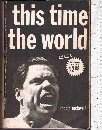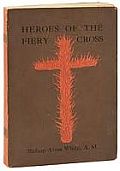Mark Twain once said “Censorship is telling a man he can’t have a steak just because a baby can’t chew it.” He was responding to his detractors that banished his book Huckleberry Finn from the Concord Public Library in Massachusetts and Brooklyn Public Library in New York. Surprisingly, the controversy was not due to the use of the word “nigger” more than 200 times throughout the book, but rather due to the use of slang that was considered damaging to the reader. The book was published in 1885 and first printing copies can be purchased today for over $10,000.
A little over one hundred years later in 1988, Indian born Salman Rushdie, wrote a book by the name of The Satanic Verses. The book deemed blasphemous to Islam, sparked riots around the world and was banned in India, Venezuela, Japan, Pakistan, Bangladesh, Egypt, and South Africa. The book’s Italian and Norwegian translators were wounded during attacks while the Japanese translator was killed. US booksellers Waldenbooks and Barnes & Noble had to stop selling the book after receiving threats and the book’s publisher, Viking Penguin, was forced to temporarily close its New York City office. The author in the meantime, is in hiding somewhere in Britain. A special leather-bound first printing from the limited edition of twelve copies only, is also commanding over $10,000.
Censorship, promotes rare book scarcity. In our previous write-up on rare book factors – Rare books what makes them rare, censorship was not referenced under the factors affecting scarcity. It is not such a common occurrence and it only has a significant impact if coupled with media fueled publicity. Books are routinely viewed with skepticism and are often times criticized or attacked by journalists, activists or readers, but seldom do they encounter censorship in today’s free world. Furthermore, unlike the localized Huckleberry Finn ban, censorship today can scale multinational and fuel political exposure. The timing, or the time period that the book is published, is also important. Ideological agendas and interests change constantly. What is perceived today as blasphemous or anarchical or vulgar or totalitarian, was not necessarily considered as such one hundred years ago and vice-versa.
With that in mind, we tried to identify a few rare books that have not been censored, but given the right circumstances, could have very well been. Here is what made that list:
 This Time the World by Lincoln Rockwell, George; Glendale, CA: Parliament House, 1963.
This Time the World by Lincoln Rockwell, George; Glendale, CA: Parliament House, 1963.
Self-published autobiography of George Lincoln Rockwell (1918-1967), founder of the American Nazi Party. In this book he lays out his plans to permanently end Jew-treason and race-mixing. Rockwell who drifted into far-right politics following a successful naval career in WWII was assassinated in 1967.
 Prostitution. An investigation of its causes especially with regard to hereditary factors by Kemp, Tage; Copenhagen: Levin & Munksgaard, 1936.
Prostitution. An investigation of its causes especially with regard to hereditary factors by Kemp, Tage; Copenhagen: Levin & Munksgaard, 1936.
Socio-genetic survey of Danish prostitutes, with excessive and detailed individual case studies. Kemp (1896-1964), was a eugenicist and the founding director of the International Institute of Human Genetics in Copenhagen. He was a firm advocate of voluntary sterilization.
 Heroes of the Fiery Cross. White, Bishop Alma; Illustrated by Rev. Branford Clarke; Zarephath, NJ: The Good Citizen, 1928.
Heroes of the Fiery Cross. White, Bishop Alma; Illustrated by Rev. Branford Clarke; Zarephath, NJ: The Good Citizen, 1928.
Racist, anti-Catholic and anti-Semitic encomium to the KKK, by the founder and spiritual leader of the Pillar of Fire Church. Established in 1901, is an ultra-conservative Pentecostal sect with strong ties to the KKK and other White Supremacist movements.
Do not let this bug you. Or, rather, go ahead, let it bug you: that was our intent here. Human attitudes are very diverse and what is insulting to us may not be as insulting to you or even be considered an insult by our parents or our children. We live in strange times, and we could do worse than to remember that even stranger times have preceded us.

{ 0 comments… add one now }